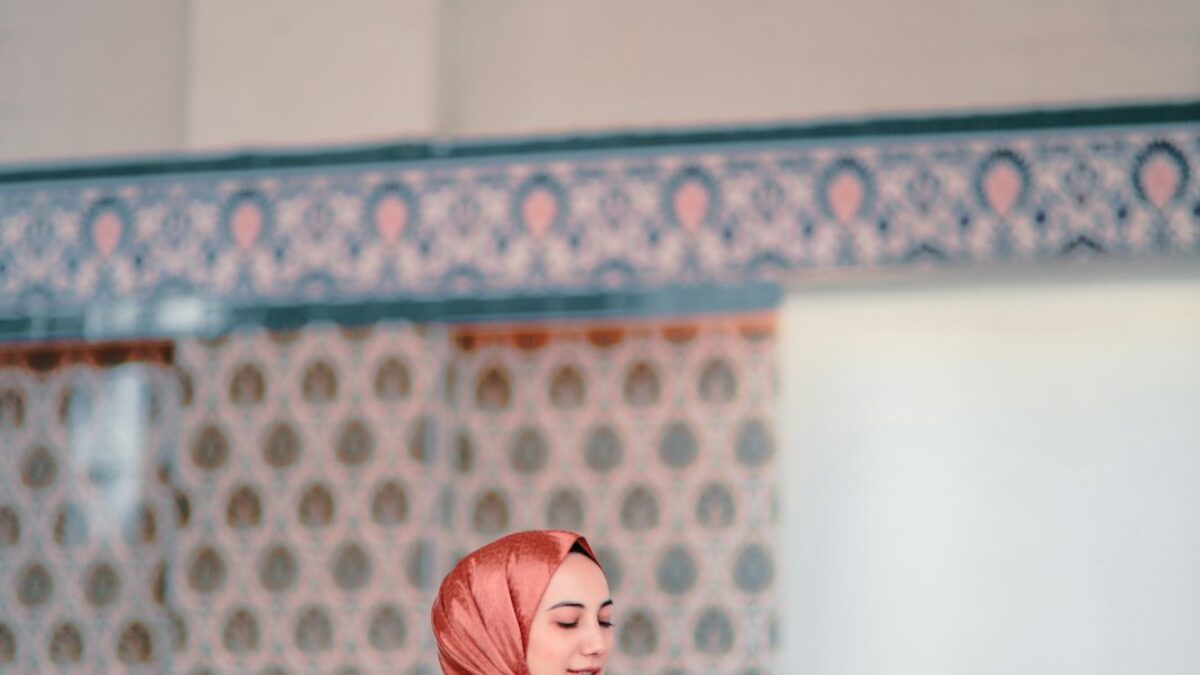Salah—the second pillar of Islam—is the heartbeat of a Muslim’s daily life. Five times each day, believers worldwide pause their routines, turn toward the Ka‘bah in Makkah, and enter a sacred dialogue with their Creator. Yet many who are new to Islam, or even born-Muslims looking to refine their practice, feel overwhelmed by the Arabic phrases, precise movements, and spiritual etiquette that Salah demands. This guide removes the mystery, offering a step-by-step, fully translated walk-through of every posture, recitation, and supplication—from the opening Takbīr to the final salām—so you can pray with confidence, concentration, and sincerity.
Understanding Salah in Islam
The Linguistic and Technical Meaning of Salah
In Arabic, the word ṣalāh (صَلَاة) is derived from the root ṣ-l-w, which conveys connection, mercy, and glorification. Technically, it is the structured act of worship consisting of specific words, actions, and intentions performed at prescribed times. Each unit is called a rakʿah, and the entire prayer can range from two to four rakʿāt depending on the time of day.
Why Salah Was Prescribed
The Qur’an mentions Salah over 700 times, often paired with zakāh (charity), underscoring its centrality. During the miraculous Night Journey (Isrāʾ and Miʿrāj), the five daily prayers were gifted to Prophet Muḥammad ﷺ directly by Allah. Ibn ʿAbbās narrated that the Prophet ﷺ said, “The coolness of my eyes is in prayer.” Thus, Salah is both an obligation and a sanctuary from worldly turbulence.
Times of the Five Daily Prayers
| Prayer | Arabic Name | Time Begins | Time Ends | Recommended Rakʿāt |
|---|---|---|---|---|
| Fajr | الفجر | Dawn (break of light) | Sunrise | 2 |
| Ẓuhr | الظهر | After sun passes zenith | Shadow equals object plus shadow at zenith | 4 |
| ʿAṣr | العصر | End of Ẓuhr time | Yellowing of sun | 4 |
| Maghrib | المغرب | After sunset | Red twilight disappears | 3 |
| ʿIshāʾ | العشاء | End of Maghrib time | Midnight (scholarly midpoint) | 4 |
Key Components of Salah
Pre-Conditions (Shurūṭ) Before Prayer
- Purity of the Body: Perform wudūʾ (ablution) or ghusl (full shower) if needed.
- Purity of the Garments & Place: Ensure no najāsah (impurity) is present.
- Covering ʿAwrah: Men must cover navel to knees; women must cover entire body except face and hands (according to mainstream schools).
- Entry of the Prescribed Time: Praying even one minute early invalidates the salah.
- Facing the Qiblah: Toward the Kaʿbah in Makkah.
- Intention (Niyyah): A mental determination of which prayer you are about to offer.
Structure of a Single Rakʿah
- Standing (Qiyām): Recitation of al-Fātiḥah and a sūrah.
- Bowing (Rukūʿ): Glorify Allah with subḥāna rabbiya l-ʿaẓīm.
- Standing After Bowing (Iʿtidāl): Say rabbana wa-laka l-ḥamd.
- Prostration (Sujūd): Twice per rakʿah, glorify with subḥāna rabbiya l-aʿlā.
- Sitting Between Sujūds (Jalsah): Brief rest and supplication.
- Final Sitting (Qaʿdah Akhīrah): Contains at-taḥiyyāt, ṣalāh ʿala-nabiyy, and personal duʿāʾ.
Arabic Text with Full English Translation
Below is the complete transliteration and translation of everything recited aloud or silently in a standard two-rakʿah prayer (Fajr). Add extra rakʿāt as required.
1. Opening Takbīr (Takbīrat al-Iḥrām)
Arabic: ٱللَّهُ أَكْبَرُ
Transliteration: Allāhu akbar.
Translation: Allah is the Greatest.
2. Opening Supplication (Duʿā al-Istiftāḥ)
Arabic: سُبْحَانَكَ ٱللَّهُمَّ وَبِحَمْدِكَ، وَتَبَارَكَ ٱسْمُكَ، وَتَعَالَىٰ جَدُّكَ، وَلَا إِلَٰهَ غَيْرُكَ.
Transliteration: Subḥānaka Allāhumma wa bi-ḥamdika, wa tabāraka-smuka, wa taʿālā jadduka, wa lā ilāha ghayruk.
Translation: Glory be to You, O Allah, and all praise is Yours. Blessed is Your name, exalted is Your majesty, and there is no deity worthy of worship except You.
3. Taʿawwudh and Basmalah
Arabic: أَعُوذُ بِٱللَّهِ مِنَ ٱلشَّيْطَٰنِ ٱلرَّجِيمِ. بِسْمِ ٱللَّهِ ٱلرَّحْمَٰنِ ٱلرَّحِيمِ.
Transliteration: Aʿūdhu billāhi minash-shayṭānir-rajīm. Bismillāhir-raḥmānir-raḥīm.
Translation: I seek refuge in Allah from the accursed Satan. In the name of Allah, the Most Compassionate, the Most Merciful.
4. Sūrat al-Fātiḥah
Arabic: ٱلْحَمْدُ لِلَّهِ رَبِّ ٱلْعَٰلَمِينَ… (complete text)
Transliteration: Al-ḥamdu lillāhi rabbi l-ʿālamī…
Translation: All praise is due to Allah, Lord of all the worlds… (continue through to …ghayr il-maghḍūbi ʿalayhim wa-lā ḍ-ḍāllī).
5. Additional Sūrah (e.g., al-Ikhlāṣ)
Arabic: قُلْ هُوَ ٱللَّهُ أَحَدٌ…
Transliteration: Qul huwa Allāhu aḥad…
Translation: Say, “He is Allah, the One and Only…”
6. Bowing (Rukūʿ)
Arabic: سُبْحَانَ رَبِّيَ ٱلْعَظِيمِ (three times)
Transliteration: Subḥāna rabbiya l-ʿaẓīm.
Translation: Glory be to my Lord, the Magnificent.
7. Rising from Rukūʿ
Arabic: سَمِعَ ٱللَّهُ لِمَنْ حَمِدَهُ، رَبَّنَا وَلَكَ ٱلْحَمْدُ.
Transliteration: Samiʿa Allāhu li-man ḥamidah. Rabbanā wa-laka l-ḥamd.
Translation: Allah hears those who praise Him. Our Lord, all praise is for You.
8. First Prostration (Sujūd)
Arabic: سُبْحَانَ رَبِّيَ ٱلْأَعْلَىٰ (three times)
Transliteration: Subḥāna rabbiya l-aʿlā.
Translation: Glory be to my Lord, the Most High.
9. Sitting Between Sujūds (Jalsah)
Arabic: رَبِّ ٱغْفِرْ لِي، رَبِّ ٱغْفِرْ لِي.
Transliteration: Rabbi ghfir lī, Rabbi ghfir lī.
Translation: My Lord, forgive me; my Lord, forgive me.
10. Second Prostration
Same as the first.
11. Second Rakʿah – Repeat 4-10
After completing the second prostration of the second rakʿah, sit for the final testimony.
12. Final Sitting (Tashahhud)
Arabic: ٱلتَّحِيَّاتُ لِلَّهِ…
Transliteration: At-taḥiyyātu lillāhi…
Translation: All the best compliments and prayers are due to Allah…
13. Ṣalāh upon the Prophet ﷺ
Arabic: ٱللَّهُمَّ صَلِّ عَلَىٰ مُحَمَّدٍ وَعَلَىٰ آلِ مُحَمَّدٍ…
Transliteration: Allāhumma ṣalli ʿalā Muḥammadin wa-ʿalā āli Muḥammad…
Translation: O Allah, bestow Your mercy upon Muhammad and upon the family of Muhammad…
14. Closing Supplications
Choose any duʿāʾ, e.g.,
Arabic: رَبَّنَا آتِنَا فِي ٱلدُّنْيَا حَسَنَةً…
Transliteration: Rabbanā ātinā fi d-dunyā ḥasanatan…
Translation: Our Lord, grant us good in this world and good in the Hereafter…
15. Taslīm (Salutation)
Arabic: ٱلسَّلَامُ عَلَيْكُمْ وَرَحْمَتُ ٱللَّهِ (twice, right then left)
























Post Comment